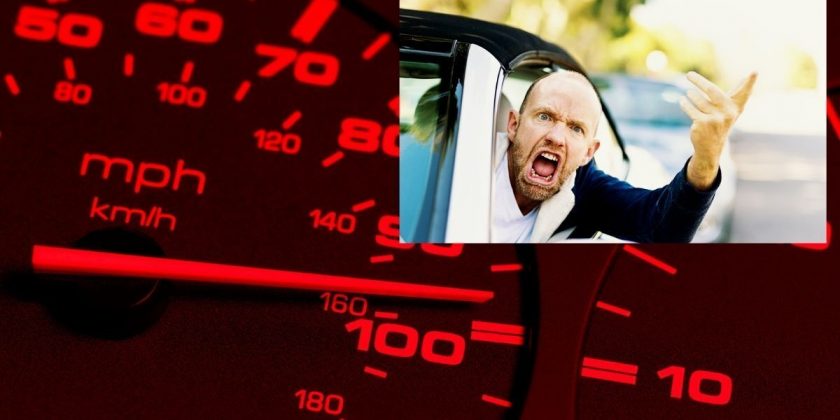Sir Brandon Lewis compares lockdown fines to speeding notices
We use your sign-up to provide content in ways you’ve consented to and to improve our understanding of you. This may include adverts from us and 3rd parties based on our understanding. You can unsubscribe at any time. More info
The survey revealed that road rage is a frighteningly common occurrence on UK roads, with 53 percent of drivers admitting to experiencing these feelings and 36 percent of these retaliating in some way.
The study of 2,000 UK motorists by Forbes Advisor showed that more than a third of UK drivers admit to speeding, as Government statistics confirm approximately 33 percent of drivers were caught breaking the limits during the final quarter of 2021.
The research reveals that men are more likely to speed than women, with 39 percent of male respondents admitting to speeding, compared with 29 percent of females.
Additionally, more than half of women admit to shouting expletives or using their horn aggressively when experiencing feelings of road rage, compared to 55 percent and 49 percent of male respondents, respectively.
In extreme cases these habits can be categorised as dangerous driving, resulting in driving bans, fines, and prison time.

Speeding offences carry a minimum punishment of three penalty points and a £100 fine, although drivers may be sent on a speeding awareness course if the police decide it is appropriate and offenders haven’t already been on a course in the past three years.
Depending on the severity of the offence, drivers can be disqualified from driving and face fines of up to £2,500, or up to one week’s salary.
Forbes Advisor also looked at how these offences affect insurance premiums, discovering that, while none of the habits would invalidate a driver’s insurance as a first offence, extreme cases could result in having their licence suspended, which would invalidate their insurance policy.
DON’T MISS
Driver‘s car completely covered in cling film [SHOCKING]
Low Emission Zones launching today – Polluting vehicles to be banned [INSIGHT]
Drivers warned of staggering fines for not wearing sunglasses [WARNING]
Kevin Pratt, car insurance expert at Forbes Advisor, said: “Driving psychology is fascinating. For instance, I know I am the best driver on the road, and I assume everyone else is a danger to life, limb and common decency unless and until they persuade me otherwise.
“And you can be sure pretty much everyone else thinks the same way when they’re behind the wheel.
“But self-delusion to one side, it’s important to remember that each car on the road is a tonne or so of fast-moving metal that needs to be driven with great caution and consideration.
“If drivers compromise their ability to control their vehicle by falling prey to distractions or letting their emotions get the better of them, the results can be disastrous.

“Cars are ubiquitous, but we shouldn’t take them for granted. Every journey deserves due care and consideration because, literally, lives are at stake.”
Road rage is also frighteningly common on UK roads, with 17.4million motorists admitting to experiencing feelings of road rage towards another driver.
More than a third of people have retaliated when dealing with road rage, and more than a fifth felt the need to report road rage incidents to the police.
The most common bad habits behind the wheel include “eating/drinking while driving”, with 37 percent of respondents admitting to snacking behind the wheel, followed by “speeding” and “playing loud music”.

The 15 most common bad habits UK drivers admit to committing:
Eating/drinking while driving – 37 percent
Speeding – 34 percent
Playing loud music – 31 percent
Not indicating – 15 percent
Under-taking – 15 percent
Driving 10mph+ below the speed limit – 14 percent
Smoking – 11 percent
Using a handheld device as a satnav – 11 percent
Middle lane hogging – 10 percent
Leaving the indicator on – 9 percent
Using a mobile to read/send text messages/WhatsApp messages while driving – 8 percent
Brake-checking (sharply hitting your brakes to have an affect on the vehicle behind you) – 8 percent
Cutting in (driving to the front of a queue in traffic) – 7 percent
Leaving full beams on – 7 percent
Tailgating – 6 percent
Source: Read Full Article
